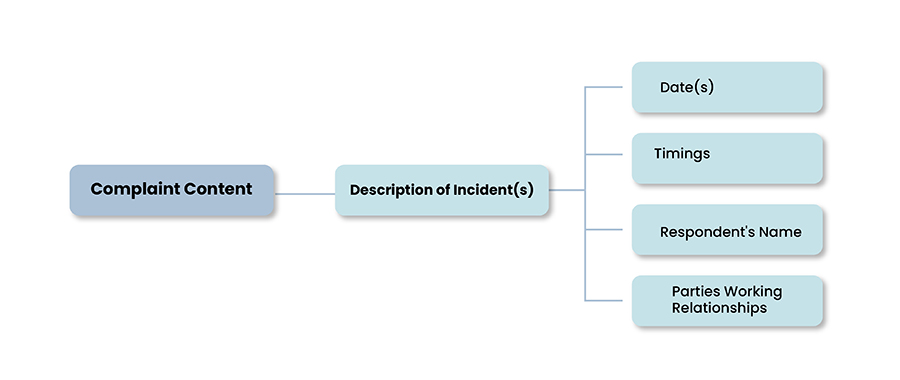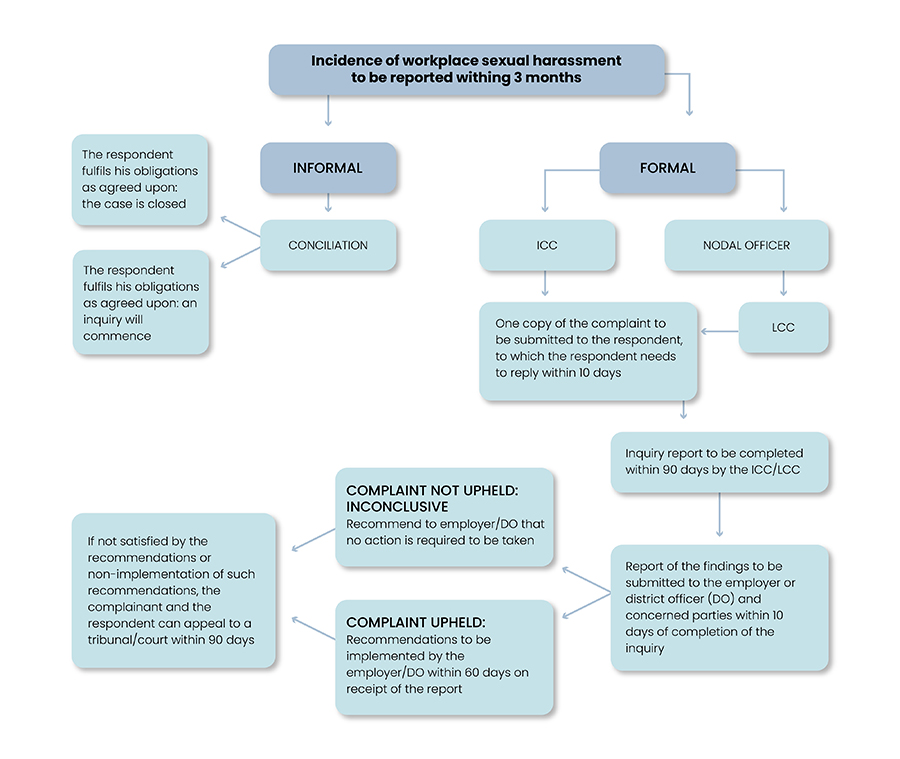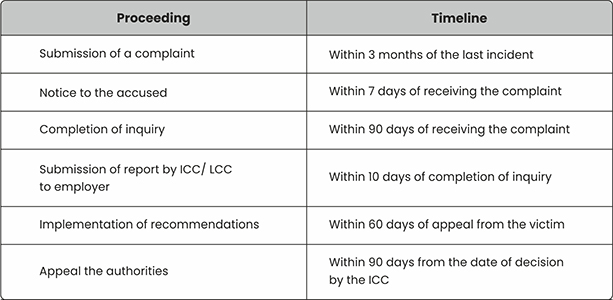Sexual harassment at work is a terrifying experience. Victims experience a wide range of emotions, including unease, disgust, anxiety, and a lack of concentration. They are constantly worried about backlash. These fears and insecurities stop them from speaking out about the harassment. The Internal Committee assists victims in submitting a formal complaint and keeps their information private to establish a safe environment. If the victim is unable to file a complaint, her legal representative may. Victims have three months from the date of the incident to register a complaint. The ICC might extend the deadline if it considers the victim was prevented from registering a complaint. The way a complaint is handled can have a significant impact on working women's equal rights and provide insight into the organization's culture.
What should the complaint contain?
The complaint contains a detailed description of the incident. It includes pertinent dates, times, and locations, the identity of the respondent(s) and the parties' working relationship. If the victim needs assistance, ICC members must assist them in writing the complaint.

How is a complaint dealt?
ICCs can handle a complaint formally or informally. In a formal setting, the committee goes through the entire inquiry process to reach a conclusion and provide a remedy to the victim. In an informal setting, both parties communicate their concerns and agree to fulfil the responsibility, and the matter concludes. However, if the respondent fails to uphold the agreement, an investigation will be launched. Section 4 summarises the Complaints Committee process for dealing with formal complaints. It acts as a guideline for giving proper compensation. The following flowchart illustrates the procedure for dealing with a complaint.

What is the timeline of a proceeding sexual harassment complaint?
If the complaint is not settled in informal setting then the ICC opens an investigation under the POSH Act. The maximum number of days required to pursue a sexual harassment complaint is listed below.

How is confidentiality protected under the POSH Act?
The unfortunate reality of sexual harassment incidents is that victims are questioned rather than offenders. As a result, many victims are afraid to disclose harassment even under the POSH Act. So, to protect victims' identities and make them feel comfortable discussing the matter, the Act includes information confidentiality. Section 16 of the POSH Act forbids the publication or dissemination of the contents of complaints or the conduct of inquiries to others. There may be harsh penalties if there is a violation of confidentiality.
The Act prohibits the disclosure of
- Contents of the complaint;
- Identity and address of victim, respondent and witness;
- Information referring to inquiry proceedings or recommendations of the ICC/LCC; and
- Actions taken by the employer or District officer.
What happens if the POSH Act's confidentiality clause is broken?
Section 17 of the POSH Act discusses the consequences of violating the contents listed in Section 16 of the Act. The section states that if a person entrusted with the job of handling or dealing with a sexual harassment complaint, inquiry, any recommendations, or action taken under this Act violates the provisions of section 16, he would be fined. The employer must collect a penalty of Rs. 5000 for violating the POSH Act rule. There are exceptions, such as the spread of information on the justice obtained without disclosing the complainant's or witnesses' name, address, identity, or particulars.
It is right to say that POSH Act does not leave any stones unturned in providing justice to the victims of sexual harassment at workplaces. The government enacted this Act to stop the growing number of sexual harassment claims. So, if you are facing workplace harassment, you should register a complaint with the Internal Complaint Committee or the Local Complaint Committee. Get in touch with me if you require any additional information about the POSH Act or how to file a complaint.
